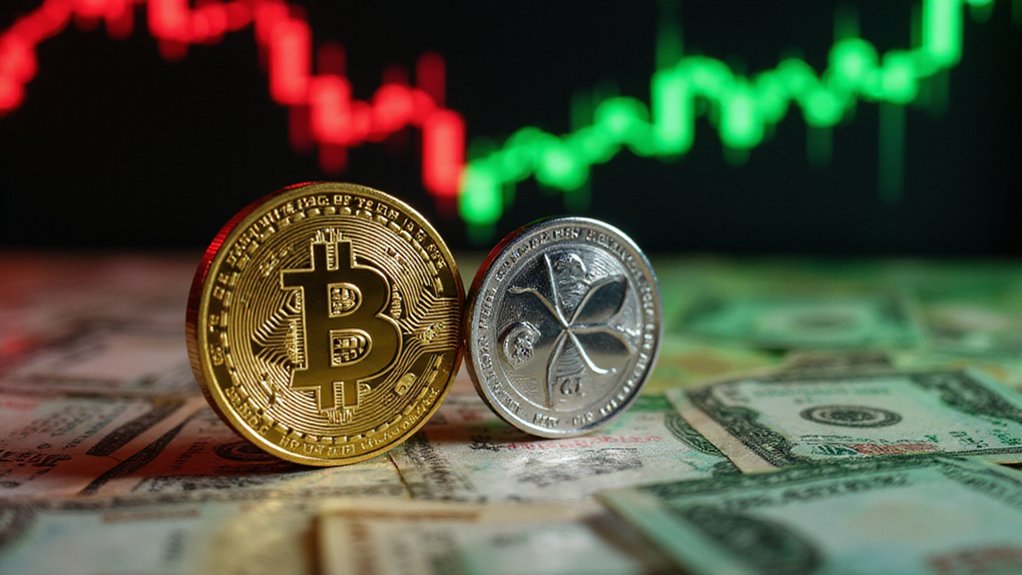The fracture between Trump and Musk began predictably enough—with Musk labeling Trump’s spending bill a “disgusting abomination” while simultaneously objecting to proposed cuts to electric vehicle tax credits.
What followed was a masterclass in how personal grievances can cascade through financial markets with frightening efficiency.
Personal vendettas between billionaires can trigger market chaos with unprecedented speed and devastating precision.
Trump, expressing surprise at his former ally’s criticism, escalated matters by threatening to cancel billions in government contracts with Musk’s companies—a move that would directly impact Tesla and SpaceX operations.
Musk’s response demonstrated his characteristic blend of technical acuity and tactical recklessness.
Beyond questioning Trump’s gratitude for past political support, he invoked Trump’s historical deficit concerns to highlight policy inconsistencies, then delivered the coup de grâce by referencing Trump’s alleged connections to the Jeffrey Epstein files.
This calculated provocation transformed a policy disagreement into a full-scale reputational war.
The market’s reaction was swift and merciless.
Bitcoin plummeted nearly 3%, triggering over $308 million in long position liquidations as algorithmic trading systems interpreted the political chaos as systematic risk.
The crypto sector, already susceptible to sentiment-driven volatility, became the unwitting casualty of what amounted to a high-stakes Twitter feud with geopolitical implications. The turmoil stood in stark contrast to the institutional demand that had been driving Bitcoin ETF inflows to unprecedented levels throughout 2025.
Perhaps most striking was how this dispute illuminated the precarious nature of billionaire influence on economic stability.
When two individuals can collectively move markets through social media exchanges, traditional risk assessment models become inadequate.
The threat to cancel government contracts—crucial for Musk’s aerospace ventures—represented political interference in business operations that could establish concerning precedents.
The media coverage and public reaction reflected broader anxieties about concentrated wealth’s impact on democratic institutions and market stability. Tesla shares reflected the turmoil with a devastating plunge of over 14%, erasing approximately $150 billion in market value. Adding fuel to the fire, Musk announced the immediate decommissioning of SpaceX Dragon spacecraft in what appeared to be a direct challenge to Trump’s contract termination threats.
What began as disagreement over spending priorities morphed into a cautionary tale about how personal conflicts between powerful figures can generate systemic economic consequences, leaving investors to navigate the unpredictable currents of billionaire discord.







